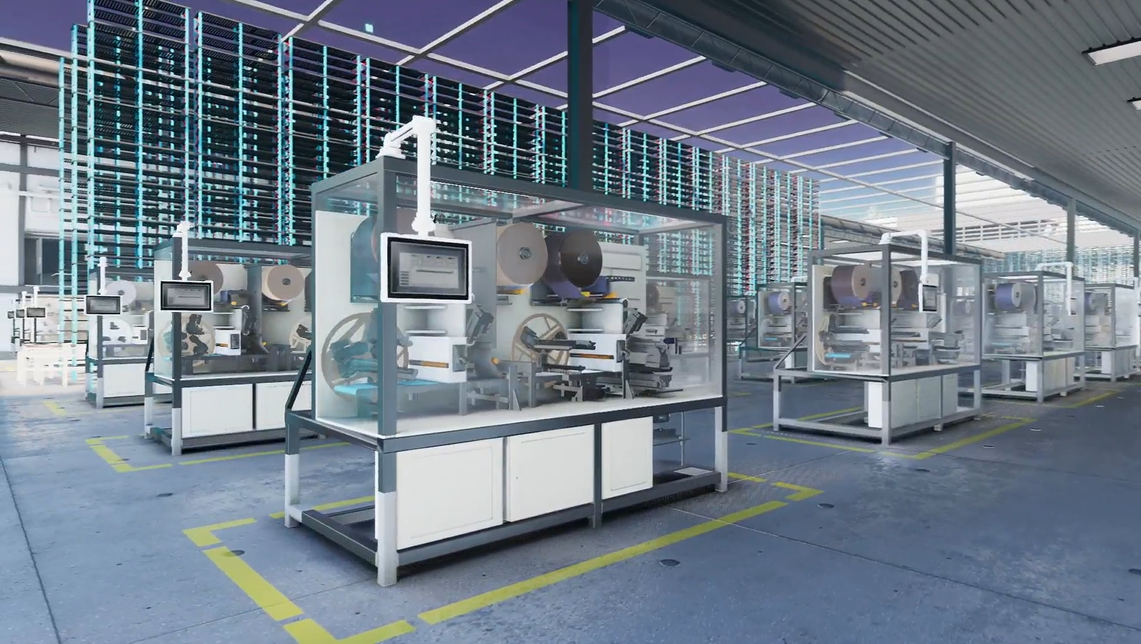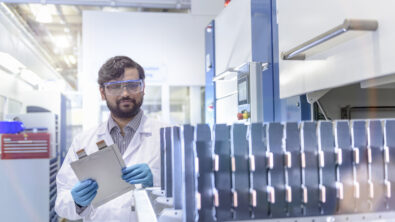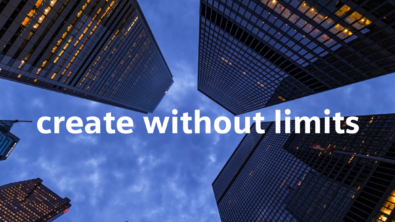Powering gigafactories – The Battery Podcast S01E12 – Transcript

From the floor of Hannover Messe 2024, we have a conversation with Dr. Philipp Wunderlich of Accenture and our Host Marc Deyda. The two talk about accelerating development for gigafactories in episode twelve of the Battery Podcast.
Nick Finberg
Welcome to the Battery Podcast from Siemens Digital Industries! For this episode we have a conversation with our host Marc Deyda and Dr. Philipp Wunderlich of Accenture to talk about staying competitive while developing sustainable battery cell production. Here is a great conversation you may have missed from Hannover Faire.
Host
Every day Siemens is helping battery manufacturers and machine builders adopt the digital enterprise approach. How? By combining the real and digital worlds leading to increased speed, transparency and efficiency. In this next session, we’re gonna be talking about the European battery market, the role of digitalization in driving sustainable and efficient battery production and how Siemens and Accenture are supporting cell manufacturers in their project life cycles. Joining me today are Dr. Philipp Wunderlich from Accenture, battery technology lead and from Siemens, Marc Deyda, head of strategy and communication for battery. Welcome gentlemen.
Marc Deyda
Hello.
Host
What is so fascinating about the battery industry at the moment?
Marc Deyda
Oh, battery is a strong growing market, has a lot of challenges that have to be solved. It’s changing fast the technology and of course you see it here on the Hannover Fair. It’s a daily talk business for everyone, everywhere on the world.
Dr. Philipp Wunderlich
What’s fascinating me coming from technology, basically from material research is how you lift it as a new novel device concept from the nano scale to the gigawatt hour scale, from the lab to the industry and the market and that’s what really shows how beautiful battery technology has grown and what impact it makes now being on the stages here. So it’s a growing market, it’s a very complex market. It’s very dynamic compared to what we’ve seen in other industries as well and the innovation speed is insane. So that’s what personally fascinates me about it.
Host
Okay, now what kind of challenges are we seeing in the battery industry, particular with regard to setting up gigafactories?
Dr. Philipp Wunderlich
Yeah, so cell manufacturing is probably the core discipline when we want to succeed in setting up this industry. The challenge is within the product complexity because given all the materials and the changes in the roadmaps, we’re assembling a very complex and sophisticated electrochemical device. And now in the gigafactories, in the mass manufacturing world we’re trying to build, we need to be able to produce it at scale, at speed and at perfect quality because we don’t want to jeopardize electric vehicle safety and there’s a lot of things to be mastered. So that complexity of both the product and the manufacturing process, which comprises then discrete and continuous process steps, that needs to be tamed and that’s a big challenge, I think for the European ecosystem at the moment. Furthermore, we’re not talking about only prototypes of battery cells, we’re not really talking entering the mass market, which means gigafactories producing millions or even billions of battery cells per year. That’s a challenge for our manufacturing industry and probably a good place here in Hannover to talk about it, simply because we need these solutions to make sure it happens at efficiency and speed.
Marc Deyda
I would add you need normally angels or reliable solutions to build up a gigafactory. So we try to be both in action, but definitely the industry is a young industry, especially in Europe and the US. In Asia, it’s already a little bit established in 30 years. So, but what is missing and what are the challenges? So IT, OT, automation standards, for example, not yet so established. So that means a lot of people coming new on the system. So new employees, new companies, startups, as well, incubants who want to extend their production capacity. And they have new machine builders. So European ones in the US and customers need Asian manufacturers or machine builders, and that have to be aligned. And the standardization is not yet so common. That means machine builders are interfacing challenges that is not expected at the beginning of the machine. So that means it has to be designed out of the challenges or requirements of the end customer. It has to be interfaced so that the machines are talking to each other, that the end customers have a production transparency via dashboards and can immediately see how efficient they produce and what kind of quality they are producing to reduce the scrap rate and to be competitive because it’s a huge competitive market. So there are a lot of investments. This has to be secured as well. And when you lose the production capacity and also the quality, you will not remain in the market. This is something really important.
Host
Yeah. Now, how does Siemens and Accenture actually help cell manufacturers in this Gigafactory project life cycle?
Dr. Philipp Wunderlich
Yeah. So, I mean, for us, it’s about the ecosystem. I mean, the battery industry ecosystem is growing and so is the ecosystem of partners like we do in this industry. So if you start a project with a company being interested in entering cell manufacturing, doing the business planning, Accenture sometimes has the first mover advantage that we know there’s business planning happening. We do the strategy consulting and the feasibility studies on the battery cell manufacturing business, and then know where to advise, like what technology to pick, what are the right cell technologies or product applications to go after. And then later, when you hit the planning phases for the Gigafactories, I think that’s where solutions are required and that’s where we then work together that in the design and EPC phase of such a factory project, we can try to make these solutions better, do the engineering on product process level and also in the IT/OT field, especially.
Marc Deyda
Yeah, we mentioned already, the financial invest is quite high. So it’s a high risk for it to survive. And therefore this design phase is really mandatory to start with that already in the product simulation as well the production itself to scale up smoothly and to reach a target objectives that have to be reached as well the process. So the process is a hybrid. So this is discreet and process automation as well needed. And therefore this has to be evaluated in the pre-designed phase to see what results is coming out of when maybe in two years, the production will ramp up. So to eliminate already the bottlenecks and the material flow to reduce the energy consumption. So being sustainable, we’ve mentioned it and also the ecosystem is coming from Asia, most times from the machine builder side, maybe in the future will be Europe who will also provide machines in the US. So it is a complex system with a lot of different nations, different languages. And as soon as you have designed it in the right phase and have given the right requirements to the ecosystem participants, you will succeed successful. And that is something which you can do already in the design phase. And I think also Accenture with the machine builder Eclipse, we started to develop a machine for the stacking. And I think this will be extended also for the battery process line further. So that was the enabler where we come closely together and future wise, we hope that we will also have a good impact in the market. Or do you wanna add something with the machine?
Dr. Philipp Wunderlich
You nailed it. Like we’re getting, we’re on a maturity journey also in terms of production equipment. And you mentioned Eclipse. So this is part of our Industry X network that we set up at Accenture, basically giving us the capability to supply hardware and production lines to this industry. But the real synergy is coming if you take, for example, the hardware business, and then adding the digital core competencies we have on it, artificial intelligence, especially Gen AI recently, data processing, and then being able to develop a machine or a concept that really improves the shop floor management.
Host
Now, if we look a little bit into the future, what other enablers for sustainability, disruptive technology, do you think are gonna be real market changes?
Marc Deyda
Okay, first we talked about the digital twin. So once it’s the vision, the development of the machines, production, and maybe also the product, the other is to make it live, right? So to map it with the real time data and starting optimizing the product, the production. And that is something what we see as a really huge enabler as well using generative AI. So what we have shown here also, Mr. Scholz yesterday, teach or programmed a robot automatically. So this is something which will definitely have a huge impact in the engineering, faster engineering, and maybe also synchronize the engineering better to have a better structure as well. So that is also reusable for different parts of engineers all over the world. And I think the inline quality measurement Accenture is doing also a huge process forward, right?
Dr. Philipp Wunderlich
One example is for example, it’s not in the Gigafactory run, but you have recycling companies who get an influx and a feedstock of different types of battery cells. And we consider ideas like using AI for product recognition to kind of recognize what type of batteries are you getting in and then sorting it out automatically and making the recycler’s life a bit easier with the power of data.
Marc Deyda
Or even avoid that the product will be produced. So starting at the process where you chain already in the beginning, so seeing the mixing slurry, for example, content in the homogeneity. So that means this can be simulized before using raw material. This is even also sustainable as long as the recipe is developed then taking it in a mass production. I think this will have also a huge impact. And definitely you see it also here on the booth, the battery passport. So everybody is using that keyword. We want to fill it with really solutions that, so means you need real time data or data out of the whole way you chain. So which begins with raw material, then the first process step mixing along the stacking, winding process and further where the data of the performance will be also mapped. And that is something which requires also data analytics, data taken in the physical system fast and to aggregate these data and to further develop better recipes or also to have a better recycling at the end of the way of value chain or lifecycle of the battery.
Dr. Philipp Wunderlich
I mean, look, we’re having as Europe kind of a late mover advantage because we’re setting up the factories later than they did in Asia. That gives us the chance to actually take the newest technologies, both for the shop floor equipment, the hardware, but also for any IT solutions and try to really make the future happen already. Because we see product passports, like the battery passport coming, it’s not just a regulation thing, but it’s also more about really getting closer to an actual digital twin of a battery as the product. And that’s why we are working on these topics. And eventually Europe can then take a leading role in this, gain a competitive edge, be more efficient in production, and then be more resourceful, more mindful on the limited resources that we have on the continent.
Host
Okay. Gentlemen, thank you so much for these insights. Great to see where we currently stand with our partnership, with Accenture and how our battery solutions are really helping our customers transform the everyday for everyone. You alluded to the fair a few times here. I wish you all the best here. Get into active discussions with our battery partners and yeah, thank you very much for being with us.
Nick Finberg
Thank you for tuning into this episode of the Battery Podcast on the production side of battery. Make sure to subscribe so you don’t miss future episodes and check out or previous releases in case you missed another interesting conversation with experts from around the industry. And until next time, you can learn more at our website siemens.com/battery.


